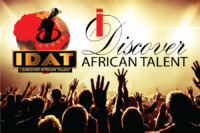
El Hadj Omar BONGO Ondimba – one of the longest-serving heads of state in the world – dominated the country’s political scene for four decades (1967-2009) following independence from France in 1960. President BONGO introduced a nominal multiparty system and a new constitution in the early 1990s. However, allegations of electoral fraud during local elections in December 2002 and the presidential elections in 2005 exposed the weaknesses of formal political structures in Gabon. Following President BONGO’s death in 2009, new elections brought Ali BONGO Ondimba, son of the former president, to power. Despite constrained political conditions, Gabon’s small population, abundant natural resources, and considerable foreign support have helped make it one of the more stable African countries.
Capital: Libreville
Government: Republic; Multiparty Presidential Regime
Economy:
- Oil and petroleum related goods are responsible for about 50% GDP, about 70% of revenues, and 87% of goods exports.
- Wood processing, food and beverage processing contribute to industrial GDP and, together with oil industries, combine to account for nearly 64% of GDP.
Population: 1.5 million (UN 2011)
Land Size: 267,667 sq km (103,347 sq miles)
Major Ethic Groups:
- Bantu tribes
- Four major tribal groupings
- Fang
- Bapounou
- Nzebi
- Obamba
- Four major tribal groupings
- Other Africans and Europeans: ~154,000
- Including…
- French: ~10,700
- Dual Nationality: ~11,000
- Religions:
- Christian: 55-75%
- Animist: < 1%
- Muslim: < 1%
Language(s):
- French (official)
- Fang
- Myene
- Nzebi
- Bapounou/Eschira
- Bandjabi
- Including…
For more information about Gabon, please visit:
https://www.cia.gov/library/publications/the-world-factbook/geos/gb.html

Leave a Reply
You must be logged in to post a comment.